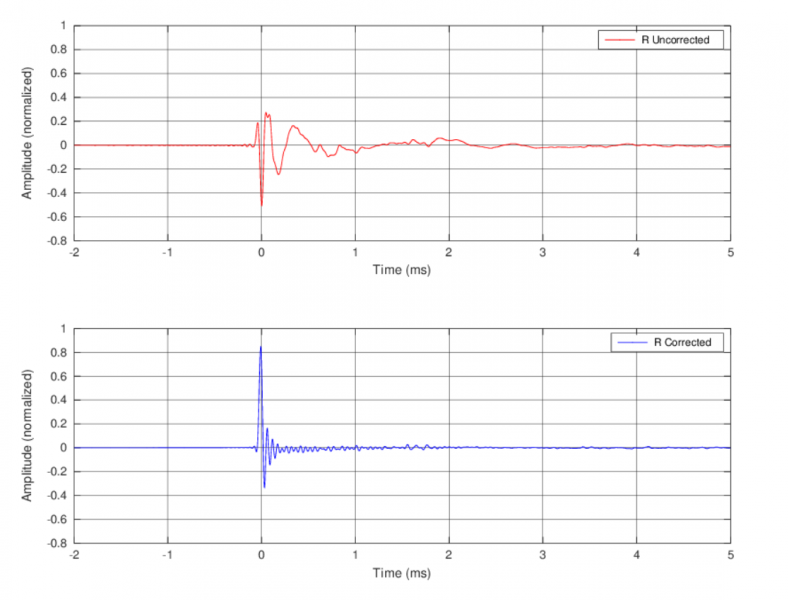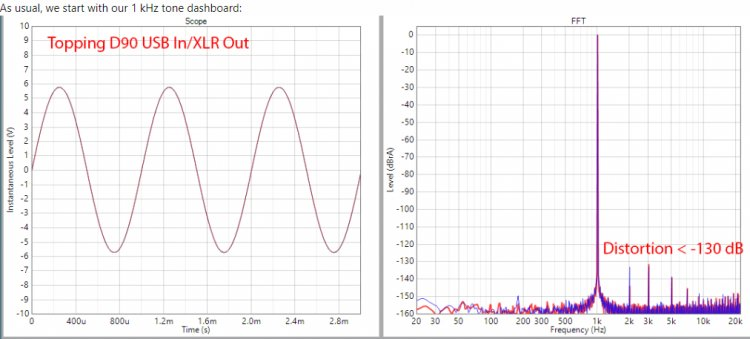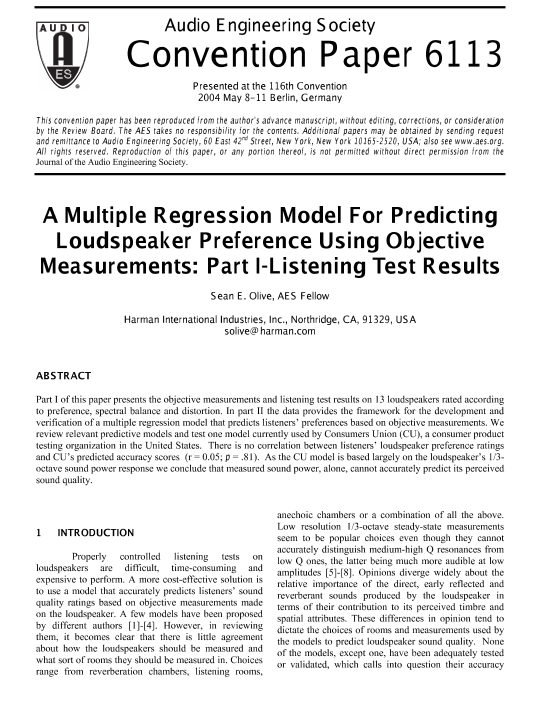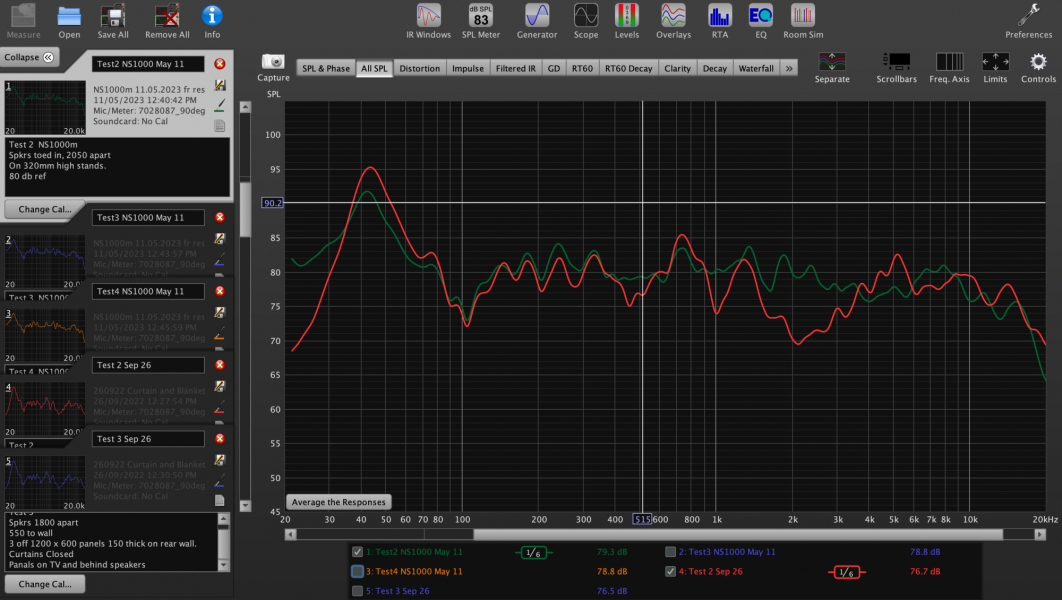In another thread I was asked, if I would provide more details about my speakers, so I thought why not?
I have played on active 4 way horn systems since 2016. First iteration was front loaded bass horn, midbass horn, tractrix midrange horn and tractrix tweeter horn. I worked nicely, with all the attributes associated with well implemented horns. Clarity, dynamics, realistic live sound etc.
However some problems will arise, with such horns. First of all, the center to center distance between the different horns is big, compared to the crossover frequencies. We need to be within 1/4 wave in distance at x-over for a seamless transition. For instance if you x-over from the midrange horn to the tweeter horn at 3 KHz the c-to-c distance would have to be 340/3000/4= 2.83 cm (1.11 inch). This is virtually impossible with "normal" horn configurations. This problem rears its ugly head, at every x-over throughout the audio frequency range. As frequency decreases, the wavelengths gets bigger, but so does the horns in the specific bandpass and then c-t-c also increases. It is a linear problem, that can't be solved with the regular approach, aka stacking horns on top of each other. This creates interference problems and lobing in the vertical response curves, that will color the reflection from floor and ceiling. Secondly a large column of vertically stacked horns, will push the sweet spot (SS) further back, for the horns to be perceived as more coherent and integrated, with one another.
But the biggest problem is that almost all horns beam with increasing frequency, it's their way of nature so to speak. What that means, is that the off-axis FR will not be similar to the on-axis FR. This translate into a poor power response, which is not considered a good thing, in terms of best sound quality.
Luckily we can circumvent all these problems with clever engineering and have our cake and eat it too, so to speak. Enter the Synergy horn.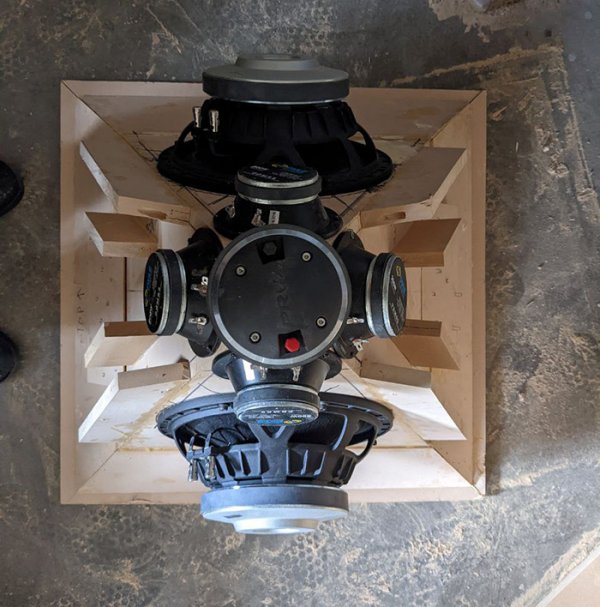
I have played on active 4 way horn systems since 2016. First iteration was front loaded bass horn, midbass horn, tractrix midrange horn and tractrix tweeter horn. I worked nicely, with all the attributes associated with well implemented horns. Clarity, dynamics, realistic live sound etc.
However some problems will arise, with such horns. First of all, the center to center distance between the different horns is big, compared to the crossover frequencies. We need to be within 1/4 wave in distance at x-over for a seamless transition. For instance if you x-over from the midrange horn to the tweeter horn at 3 KHz the c-to-c distance would have to be 340/3000/4= 2.83 cm (1.11 inch). This is virtually impossible with "normal" horn configurations. This problem rears its ugly head, at every x-over throughout the audio frequency range. As frequency decreases, the wavelengths gets bigger, but so does the horns in the specific bandpass and then c-t-c also increases. It is a linear problem, that can't be solved with the regular approach, aka stacking horns on top of each other. This creates interference problems and lobing in the vertical response curves, that will color the reflection from floor and ceiling. Secondly a large column of vertically stacked horns, will push the sweet spot (SS) further back, for the horns to be perceived as more coherent and integrated, with one another.
But the biggest problem is that almost all horns beam with increasing frequency, it's their way of nature so to speak. What that means, is that the off-axis FR will not be similar to the on-axis FR. This translate into a poor power response, which is not considered a good thing, in terms of best sound quality.
Luckily we can circumvent all these problems with clever engineering and have our cake and eat it too, so to speak. Enter the Synergy horn.

Last edited by a moderator:





